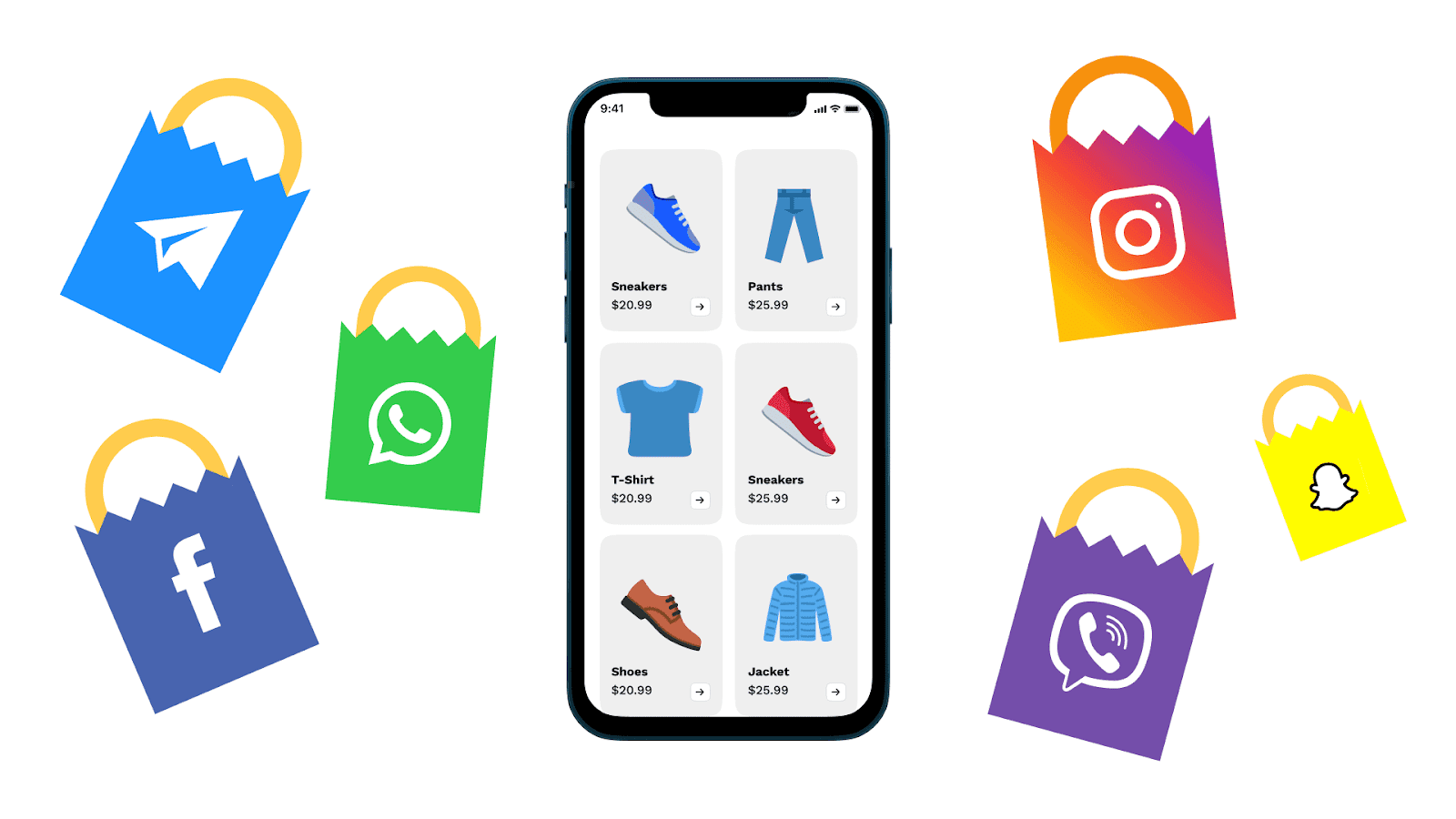In recent years, social commerce has emerged as a game-changer in the world of e-commerce, blending the power of social media with online shopping to create seamless and engaging shopping experiences. As technology continues to evolve, the future of social commerce promises even more innovation and transformation. Let's delve into some key trends and developments shaping the future of social commerce.
Social commerce platforms are evolving into full-fledged marketplaces, offering a wide range of products and services directly within the social media ecosystem. From Instagram Shops to Facebook Marketplace, these integrated shopping features allow users to discover, browse, and purchase products without leaving the app. As social commerce platforms continue to expand their capabilities, they are becoming powerful e-commerce destinations in their own right.
Live commerce is poised to revolutionize social commerce by combining real-time video streaming with shopping experiences. Live commerce enables brands and influencers to showcase products, answer questions, and engage with audiences in real-time, creating a sense of urgency and excitement around purchases. With features like live chats, interactive polls, and in-stream purchasing options, live commerce offers a highly immersive and interactive shopping experience.
Augmented Reality (AR) and Virtual Reality (VR) technologies are set to play a significant role in the future of social commerce. AR allows users to virtually try on products, visualize how they would look in their environment, and make more informed purchase decisions. Similarly, VR enables immersive shopping experiences, allowing users to explore virtual stores, interact with products, and even socialize with friends while shopping. These technologies enhance engagement and bridge the gap between online and offline shopping experiences.
User-generated content (UGC) is becoming increasingly influential in social commerce, driving purchasing decisions and fostering community engagement. Brands are leveraging UGC, such as customer reviews, photos, and videos, to showcase products in authentic and relatable ways. By encouraging user-generated content and leveraging social proof, brands can build trust and credibility with their audience, ultimately driving conversions and sales.
Personalization is a key focus in the future of social commerce, as brands strive to deliver tailored shopping experiences that meet the unique preferences and needs of individual consumers. AI-powered algorithms analyze user data, behaviour, and preferences to recommend relevant products, curate personalized content, and optimize the shopping journey. By delivering personalized recommendations and offers, brands can increase customer satisfaction and loyalty.
Social commerce is going global, with platforms expanding their reach to international markets and catering to diverse audiences worldwide. As cross-border e-commerce continues to grow, social commerce platforms are implementing features like multi-language support, localized content, and region-specific payment options to accommodate global customers. This global expansion presents new opportunities for brands to reach untapped markets and diversify their customer base.
Integration with messaging apps is blurring the lines between communication and commerce, enabling seamless transactions within messaging platforms. Messaging apps like WhatsApp, WeChat, and Facebook Messenger are introducing features that allow users to browse products, make purchases, and interact with businesses without switching between apps. This convergence of messaging and commerce simplifies the shopping experience and facilitates direct communication between brands and customers.
Social commerce is becoming increasingly shoppable across different formats and channels, including images, videos, stories, and live streams. Brands are leveraging visual content and interactive formats to create engaging shopping experiences that capture users' attention and drive conversions. By making content shoppable, brands can capitalize on impulse purchases and seamlessly guide customers through the purchase journey.
Blockchain technology is emerging as a disruptive force in social commerce, offering transparency, security, and trust in online transactions. Blockchain enables features like smart contracts, which automate and secure transactions, and decentralized marketplaces, which eliminate the need for intermediaries. By leveraging blockchain technology, social commerce platforms can enhance payment security, protect user data, and build trust among buyers and sellers.
In conclusion, the future of social commerce is bright and full of possibilities. With advancements in technology, shifts in consumer behaviour, and innovations in e-commerce, social commerce is set to become even more integrated, personalized, and immersive. Brands that embrace these trends and adapt to the evolving landscape of social commerce will be well-positioned to succeed in the digital marketplace of tomorrow.

No comments:
Post a Comment